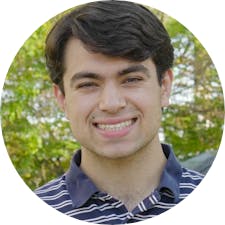The Adirondack chairs known and loved by students for enjoying Middlebury’s seasonally nice weather may soon face a competitor: adult playground equipment.
Last December, the college announced its plans to allocate an additional $4.9 million to mental health services. Conversations between staff at the Center for Health and Wellness (CHW) and students from Community Council and SGA on how best to proceed with the money have sparked several ideas: the hiring of more counselors, expanded programming and events to support student mental health and wellness, and the beginning stages of an adult playground to be built on campus.
The $4.9 million allocation is thanks to an unrestricted gift from a member of the class of 1959 last fall, arriving at a time when students were especially concerned about the mental health crisis at Middlebury after multiple student deaths. The Senior Committee Gift Team also dedicated the class of 2024 senior gift to mental health initiatives last spring, raising $51,292 thus far. Including this amount, the “For Every Future” campaign has raised $614,353 for mental health and wellness since its public launch last fall, according to Associate Vice President for Advancement and Campaign Engagement Alanna Shanley ’99.
The team reported that they have since hired three new counselors using the gift fund: two contracted counselors who work remotely and one regular full-time counselor working on campus. Alyssa Brown, who identifies as Black, queer and neurodivergent, was hired in February and works remotely with students. Adam Jon-Aparicio, who identifies as a first-generation college graduate and gay Latino man, was hired in April and also works remotely, but has visited campus as a facilitator for wellness days. Sarah Marcus ’14, a Middlebury alumnus who identifies as queer, started this fall and works with students in-person on campus.
Brown and Aparicio provided 43 counseling sessions to students in the spring, according to Director of Counseling Tammy Austin. The CHW is looking to fill one additional counselor position, and a program funding stipends for graduate intern counselors to work at the college will launch this semester.
Madeline Hope, director of the CHW’s team for health and wellness education and mental health promotion specialist, expanded on the center’s vision and intentions for the upcoming wellness days.
“Our hope is that these aren't just isolated where somebody with clinical experience comes, they have that day and then they're gone. They're a combo of some groups and support, and then also a bunch of different activities that are sponsored by or facilitated by Center for Health and Wellness staff, with the hope of building trust and connection, and demystifying some of the things about services across our center,” Hope said.
Aparicio facilitated the first wellness day of the semester — Queer and Trans Wellness Day — on Saturday, Sept. 21 at the Prism Center. Hope described some of the special programming for the wellness days that the new funding has enabled, including inviting a massage therapist, incorporating Dean of Students Joe Russell’s therapy dog into student activities, aromatherapy and forest bathing walks. Events on Saturday incorporated these elements, as well as catered meals from Taste of India and Crooked Ladle.
“The hope is that it doesn’t feel like a whole heavy day of being in a day long group. The focus is on connection, community, relaxation and some clinical support too,” Hope said.
The CHW will host another wellness day for BIPOC students at the Anderson Freeman Center (AFC) on Oct. 19, and is finalizing details for neurodivergent and first-generation student-centric wellness days in the coming months.
Alongside the wellness days and increased funding for counseling, the staff at the CHW are in the midst of designing and finalizing plans for a more community-oriented outdoor gathering space — in the form of an adult playground.
“The way we've tried to approach making use of this gift is to not just make it all about one on one clinical services behind closed doors. It's not just about adding more counselors. It's not just about increasing one specific type of service, but in having lots of different entry points for people to engage with services on a big spectrum,” said Associate Vice President for Student Health and Well-Being Barbara McCall.
McCall explained that, when soliciting feedback from students about how best to implement the $4.9 million dollar gift, a common response from students was appreciation for Middlebury’s outdoor spaces and the wish for more gathering locations that are available throughout the seasons.
In formulating a plan for a new outdoor installation, the CHW sought voices and opinions from a range of student groups on campus, including members of the Student Government Association, the college’s Community Council, Mental Health Peer Educators and a member of Facilities Services who has experience with installing playground equipment. They met with the playground equipment company Kompan to discuss which equipment would be best suited for adults and maximize accessibility to those with disabilities.
Playground equipment that CHW staff are incorporating into proposed designs include swings, permanent hammocks, a spinning disc-like fixture called a “supernova,” a rope-based climbing element and all-weather outdoor seating that could be used for classes, group meetings or leisurely conversations. Parkour-style play pieces are also being taken into consideration.
McCall explained that an additional decision that must be made in planning the new outdoor installation is whether or not the campus should have one consolidated adult playground, or a number of them distributed throughout the grounds. Locations the team has considered thus far include next to the basketball courts behind Ross dining, near the new residence hall and behind Forest Hall, just outside the courtyard.
The CHW is working with the college’s Space Management Committee to narrow down these choices. Once the CHW finalizes a plan as an addendum to their original proposal to submit to the committee this semester and receives an evaluation and approval, they will determine a timeline for installation.
Looking forward, McCall and the CHW staff are grateful for the flexibility in future programming bestowed by the gift.
“This will be our first full year to say ‘here are our priorities, here's how we're utilizing the funding’ and we may find that we need more or less than we had originally guesstimated, so we can toggle up and down the levels that we need to. And I think it's really good practice. We tend to do this with our gifts, or any funding or projects that are large scale — to reassess them every couple of years. So getting through this first full year will be important,” McCall said.
According to McCall, the $4.9 million dollar gift is endowed, meaning that the CHW receives a portion of the funding from it every year in perpetuity, allowing staff to rearrange their objectives and spending commitments with each new academic year.
“If we can't do something this year, we can make it a priority for next year, because the money each fiscal year restarts and we have access to a new portion of it. We anticipate that there may be challenges, or we may need to change course, or we may get feedback that influences how we move forward for the following years,” McCall said.

Cole Chaudhari ’26 (he/him) is a Managing Editor.
Cole is a managing editor at The Campus, where he has previously served as a news editor, copy editor, and staff writer. He is a junior, and is studying history and literature.

Madeleine Kaptein '25.5 (she/her) is a managing editor.
Madeleine previously served as a staff writer, copy editor and local editor. She is a Comparative Literature major with minors in German and Art History. In Spring 2024, she studied abroad in Mainz, Germany, from where she wrote for the Addison Independent about her host country. In her free time, she enjoys journaling, long walks and runs, and uncomplicated visual arts projects.




